
In December 2017, Adam Ondra visited Israel and the Occupied Palestinian Territories. He received criticism on social media largely for not engaging with local Palestinian climbers, but was also reprimanded by some for naming Israel's first 9a 'Climb Free' - a clumsy, ironic choice, comments read. Swiss journalist Dominik Osswald joined Adam and his team on the trip, and wrote the following account of their time there.
*Text translated from German.*
An armoured vehicle is approaching. Uri, the driver, winds down the window. He exchanges a few words with the soldiers, pointing towards the sunset, towards Lebanon. We turn, Uri knows the right way now. I ask if the soldiers are guarding the border. "Yes, but it is peaceful here." It couldn't be more peaceful. From a path we step out onto a plain, with the buzz of cicadas and the call of a muezzin murmuring from a distance. Otherwise it is quiet. Then a scream pierces the air. The scream doesn't seem far away. But when we reach its source, the magic is already over: Adam Ondra has just established Israel's hardest route in the impressively overhanging Nezer Cave.
When Adam leaves the cave, the moon has risen and the muezzin has fallen silent. Hyenas begin to howl. It's early December and a pleasant 12 degrees even after nightfall. That Adam should climb here is not a matter of course. At this time of year, there is a rule on climbing access, but for the best climber in the world, it was relaxed. "You can climb here only in certain months, officially to protect the bats," said Ofer Blutrich, the best climber in Israel. And unofficially? "Because you could sue the state if you fall down." In Israel, all public land belongs to the state. This means difficult access for outdoor sports, whether mountain biking or climbing - there is a nationwide ban. Ofer wants to relax the ban, and his efforts towards achieving this are extensive. Adam's visit should bring more attention to climbing in Israel. Wherever he goes, Adam is followed by the gaze of the climbing media. Normally, his actions are sympathetically acknowledged. However, his appearance in Israel is controversial on social media from day one. Can Adam be instrumentalised by Israel? Does a commitment to Israel's climbing also mean a commitment to its politics? Or is it just about the sport?
Under his first post on Instagram, a nasty dialogue appears within minutes. One user wrote: "Welcome to Israel Adam." The next one wrote: "It's Palestine !!!" And another one: "F*ck you asshole!"
Adam is certainly not a climber who only has eyes for rocks. "I get around a lot, I would be stupid if I didn't care about countries and their people." We reel off some turning points in the Middle East conflict. In 1948, the founding of the state of Israel, and the ensuing war with the Arabs, who wanted to destroy the new state immediately. In 1956, the war with Egypt after Nasser had closed the Suez Canal. In 1967, the Six-Day War, when Israel pushed back the Arab aggressors and most recently, the war with Lebanon in 2006. Adam has questions at each point, and Ofer explains patiently. "They fired at me with just about every bullet you can imagine." He says this not with a heroic undertone, but rather meekly.
"How wide is the Gaza Strip?" Adam asks.
"Small, maybe 10 by 40 kilometres," replies Ofer.
"Have you ever been stationed there?"
"No, always in Lebanon."
Ofer Blutrich is a silent man with black curly hair. When I ask him at the end of an intense day of climbing whether he is tired, he says: "No. I wanna go on." The man is full of energy. But sometimes he seems tired, thoughtful, almost apathetic. Maybe from explaining? From the negotiations with the authorities?
In 2000 he went to Switzerland. "It was the first time I saw what a peaceful life means." He came back to Israel with a new concept of life. After a short time he left the army and went on a world tour. That made him what he is today. "I started as a globetrotter, and came back as a climber." On the rock he can forget about the past. Although there were hardly any climbing areas in Israel after the turn of the millennium, Ofer learned to trad climb and belay in Chamonix. Gradually, he discovered the potential of his country, of which Nezer Cave is the showpiece. Practically on the border with Lebanon, it lies in the hills. You only spot it when you are close to it, before descending in dense fig trees into a pit. Behind this the mighty cave opens up with steep, overhanging and pocketed limestone rock. The soil is sandy, the place inviting. If the muezzin sounds from afar, it would be hard to tear yourself away from here. Ofer has gone to great lengths to bring Adam to Israel in cooperation with the Ministry of Tourism. The holy land not only wants to be viewed as historical and cultural, but also as adventurous. As a result, Adam Ondra is welcomed.
In Haifa we go to a Lebanese restaurant. On a wall, someone has painted a picture with the slogan: "We make an enemy to feel united." Soon the conversation turns again to the Middle East conflict and Adam listens with interest. I ask Ofer if it is tiresome to be confronted with conflict all the time. "The conflict belongs to us," he says. Ofer explains the three areas that have shared the West Bank since the Oslo Accords, A: full civil and security control by the Palestinian Authority, B: Palestinian civil control and joint Israeli-Palestinian security control, and C: full Israeli civil and security control. Two-thirds of the West Bank are Area C. Finally, Adam presents a proposed name for the 9a route, of which he had made the first ascent. "I'd like to call it Bolt, like lightning. Because the route is zig-zag-shaped like a flash. "
Ofer is not enthusiastic.
"Bolt, that sounds like bolts."
"And in Hebrew?"
"Then the route would be called Barak ... That sounds like Barack Obama ..."
Ofer is still not impressed.
"You do not like it, no problem," says Adam. "I'm thinking of something new."
On a rest day we drive to Jerusalem for sightseeing. The idea is that Adam will climb the walls of Jerusalem as a PR stunt, coming from the Ministry of Tourism. However, a special permit could not be obtained in time. There were also safety concerns. I ask Adam if he's glad that he doesn't have to climb. He shrugs. "At the Western Wall I would certainly not have climbed, I would have resisted."
It comes almost as a surprise. Adam is a very sociable person; there is no aura of celebrity about him. He talks to everyone. In Jerusalem, he stands patiently for selfies when tourists recognise him in disbelief - even after the sixth time. At the crag, he gives tips to other people who are struggling on his warm-up. He greets strangers with the gracious interest of a grandfather, and when asked about the thousandth time if he will ever climb 10a, he replies as if he were hearing this question for the first time, before commenting: "There are no annoying questions." You get the impression that he wants to do well by everyone, to be there for everyone. When Pavel, his manager, says that Adam is too all often passive instead of sticking up for himself and expressing his true opinion, Adam answers quietly, "I don't waste energy on unnecessary conflicts. I need that for other things."
A young guide greets us in Jerusalem and pulls us into the hectic bustle of the market; the pulsating city in which three out of five world religions are rooted. We meander through the market, tasting fruit juices, flatbreads and, at an Iranian stand, spices formed into colourful piles. We stand at the tomb of Jesus and at the Wailing Wall as Jewish believers come to the Shabbat. We don't sense any hostility. Only on the front pages of the daily newspapers are tensions recognisable: images of burnt Israel and USA flags, in light of Trump's announcement to recognise Jerusalem as Israel's capital. Around lunchtime we will be welcomed by Uri Taub at the Jaffa Gate, he works for the Ministry of Tourism and speaks English with an American lilt. His 15-year-old son is also there, whose English mimics that of his father. A city tour of Jerusalem is packed with history and politics. In the evening we fall exhausted into the sofas of the hotel lobby. Adam is concerned about whether the Star of David on Israel's flag is an affront to the Arab-Israeli population. Nobody likes to go to a restaurant after a long day, so we generously serve ourselves at the Happy Hour buffet. Adam reads things from Wikipedia. "We didn't see the Armenian quarter."
The next day we pass a checkpoint not far from Ramallah. Here, in the West Bank, where the Judean Desert begins and less and less grows, there is a canyon with a climbing area: 'Ein Fara' is the Palestinian name, 'Ein Prat' is the Hebrew term.
"Is there a Hebrew and an Arabic name for every place?" Adam asks.
"No, sometimes there is only the Arabic name," replies Ofer. "The Hebrew language was virtually extinct for 2000 years. Therefore, after 1948 all places had to be renamed. In some places, the Arabic name was simply adopted."
"Which area are we entering now?"
"Area C."
Palestinians are allowed to climb there, but their access to the area is not nearly as easy as ours. They are not allowed to pass a nearby Israeli settlement; they can only reach the cliff via a detour.
Bernardo Gimenez, the photographer, asks the driver to stop. He wants to film as our car rolls over the dusty road, with the Judean desert in the background. As we wait, I ask Adam what he's up to today.
"I think there's an 8c there?" He asks Ofer.
"Yes and two 8b+s, otherwise a few 8as in another sector."
"That's all?"
"Yes. It's good that we are early. It's Saturday, many climbers will come. "
"Because they know we're here?"
"No. The area is just popular."
Adam is confident of making the 8c onsight. Bernie is still filming, while Adam gets slightly impatient. When the sun is high, it gets too hot for climbing.
The canyon of Ein Prat is a sort of national park; a monastery is built into the rock. Many people come here on Saturdays, take a walk through the gorge and take a bath in the crystal-clear water that collects in pools. Adam warms up quickly on a 7c. After little more than two minutes, he has already clipped the chains. Then he tries the 8c, which he wants to onsight. The sun is already shining right on the wall. Adam climbs quickly to the crux: a smooth, vertical section with minimal holds. A small group of climbers sit on a rock and watch, spellbound. At the bottom of the spring, a walker slips in sandals and lands in the water. Adam falls. He cusses in Czech. He scolds himself and hits his thighs. It sounds like: "Why could I not just stay focused?!" With each passing minute the sun rises and the desert landscape unfolds.
While Adam pauses, Bernie tells of his first encounter with Adam in Céuse. Their relationship was purely professional, and Bernie could not connect with the skinny boy with the nickname 'Harry Potter.' "I remember, we each disappeared into our separate vans in the evenings at the campsite. Adam had no need to talk to me. He was shy and very focused on climbing." Seven years have passed and Adam has become the best climber in the world, while shyness has been replaced with self-esteem and broadened interests. There is not much left of the introverted nerd that the first climbing films of Adam Ondra brought out, and Bernie became a close friend. "I filmed him on his first 9a onsight ascent, then on the world's first 9b+, and finally on the first 9c. Apparently, Adam believes that my presence helps," explains Bernie, laughing. He takes his camera and gets ready. Adam starts his second attempt to tick the 8c. The sun is high. Adam falls. He gives up.
We drive to the Dead Sea. Far along the coast are abandoned houses; a former holiday resort. A dry jetty at this time, but ships hardly ever sail in the Dead Sea anyway. It's not a transport route and apart from some bacteria, nothing lives in it. The water level lowers by one metre every year, because all inflows are used for power generation or agriculture. We enter a beach area. The water consists of one-third salt and swimming is a special experience because of the strong buoyancy. When we've had enough of floating, we exfoliate with the sandy mud. That should be good for the skin.
"I have a new name suggestion," says Adam to Ofer. "I would like to baptise the 9a 'Climb Free'. In line with your efforts to free climbing in Israel."
They agree on the name.
Adam paints "Climb" in Ofer's muddy back.
And Ofer "Free" on Adam's back.
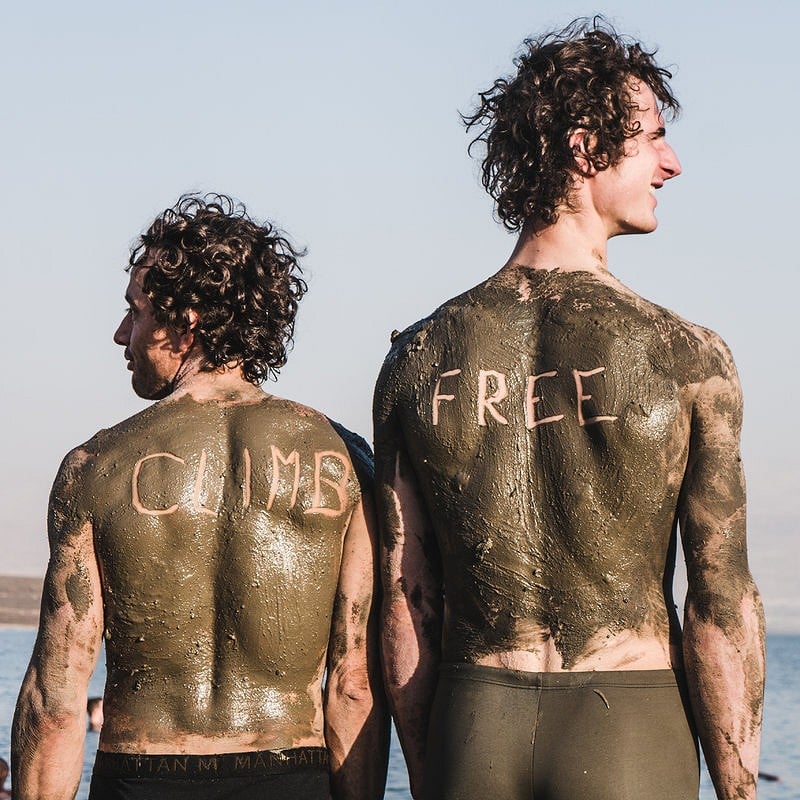
The picture was later criticised on social media: "climb free" is understood as a cynical message in a state that has been in a freedom-robbing conflict since its birth 70 years ago. Adam responds with a post: "I wanted to put the policy aside and emphasise that climbing should be free for everyone and it does not really depend on country, religion, gender or race. The situation in the Middle East is extremely complicated and difficult to understand from a European perspective. Freedom is something that will always be limited there. Climbing is a good way out, I think."

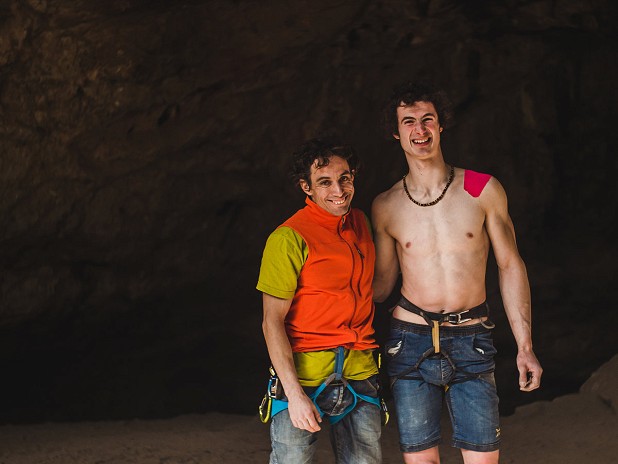
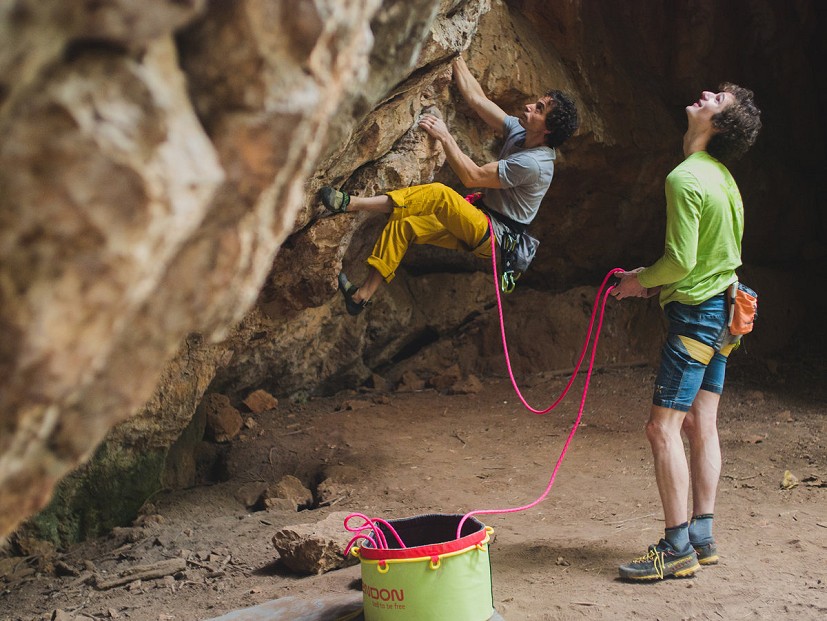
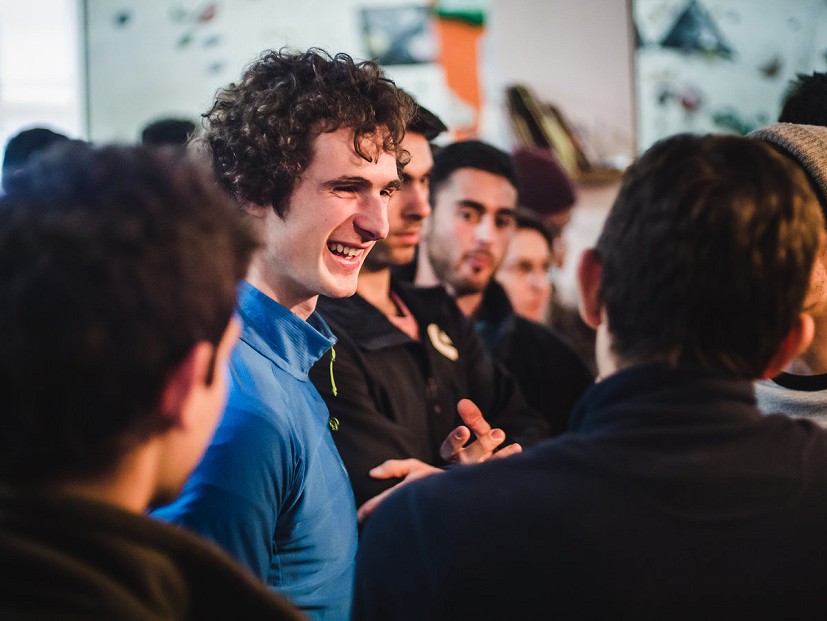
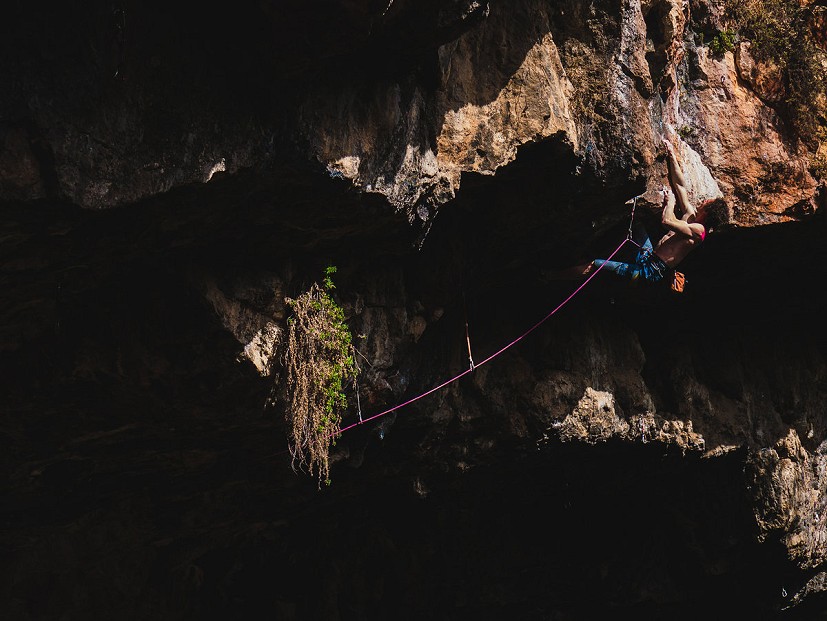
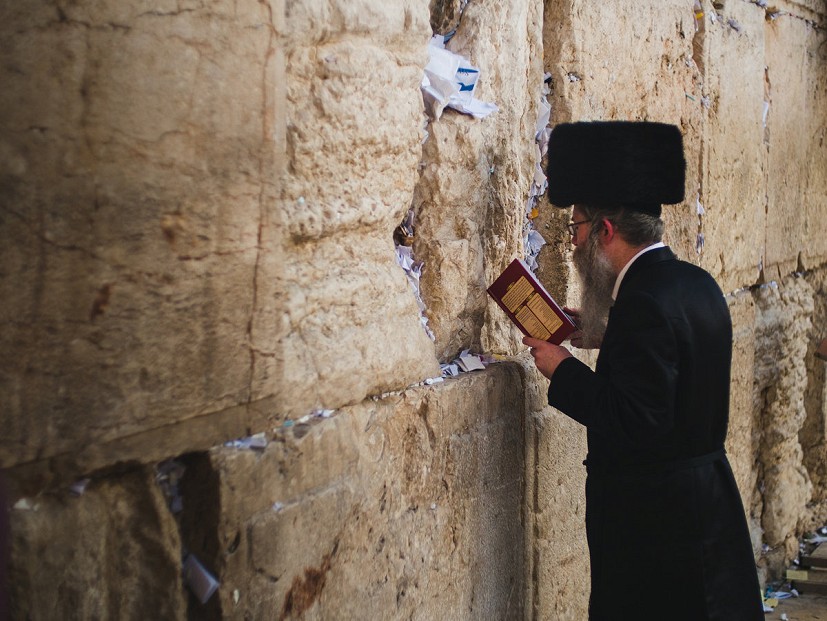
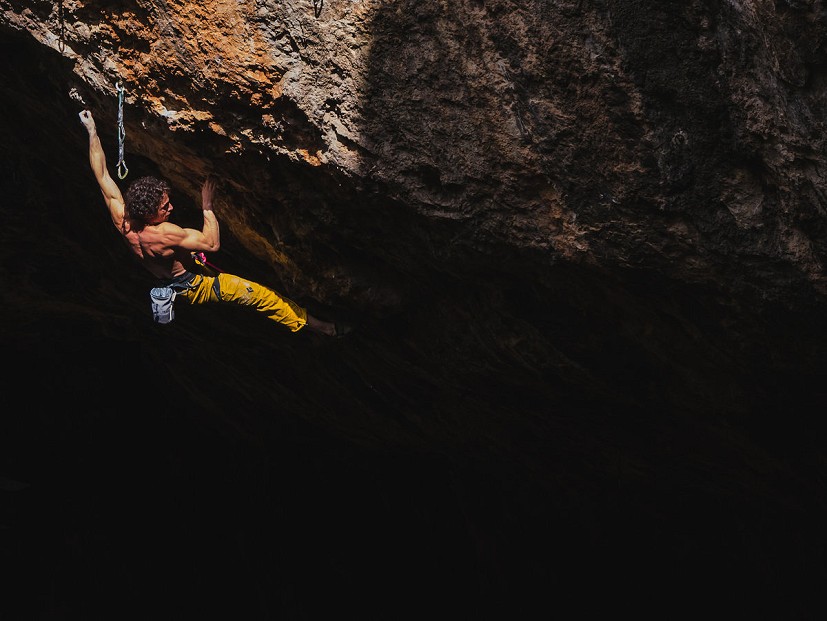
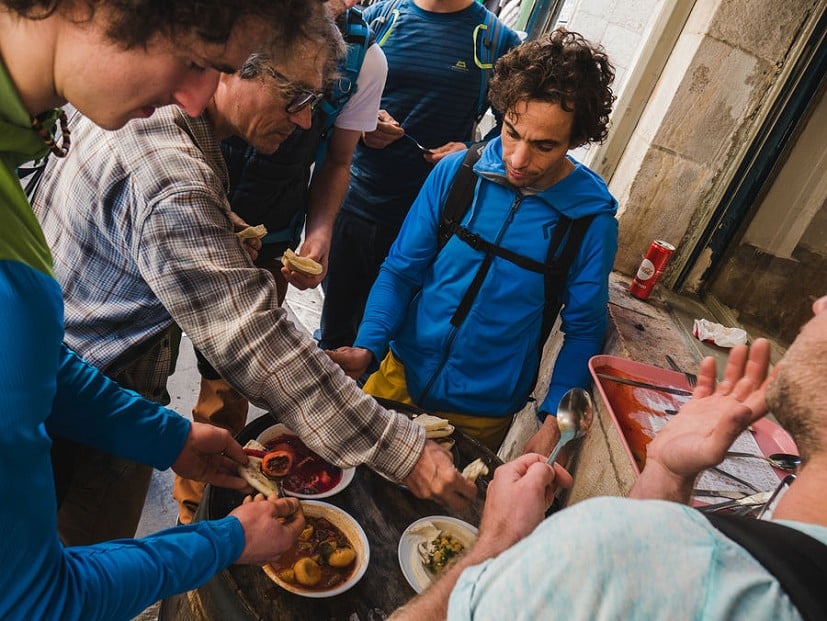
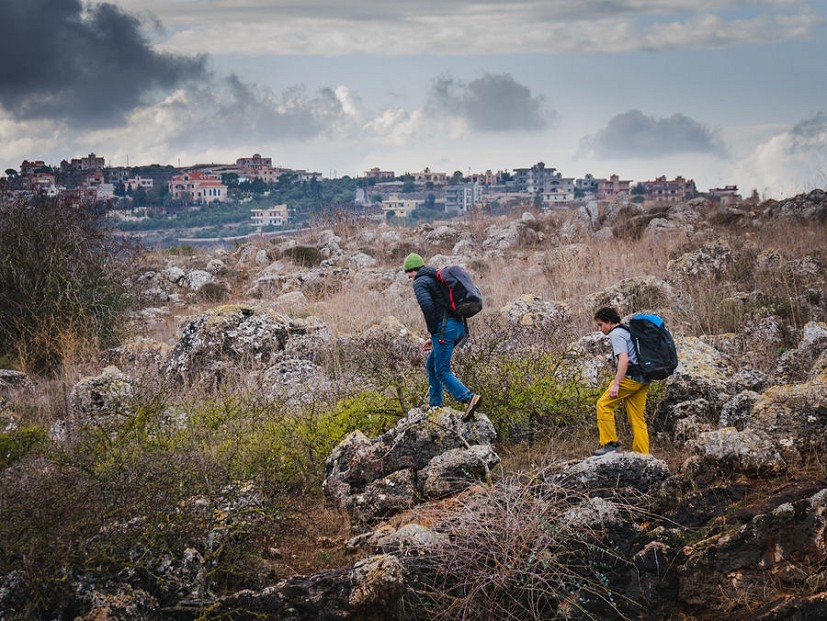
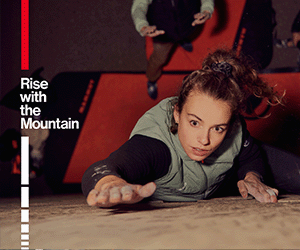

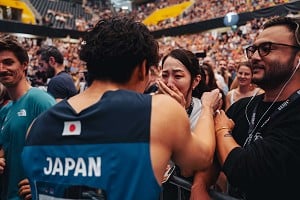






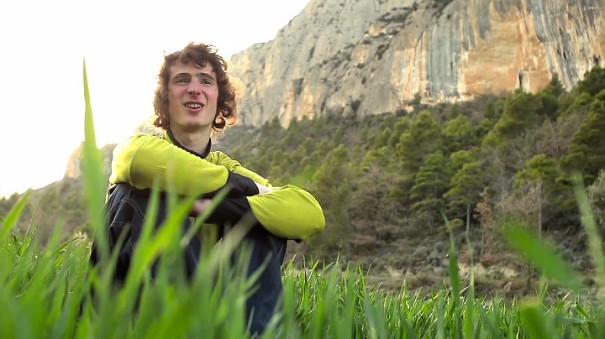
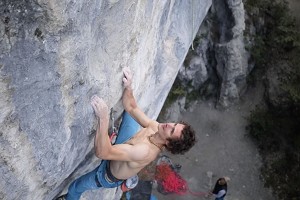

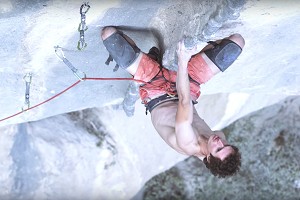

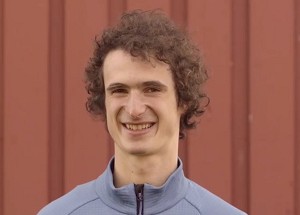
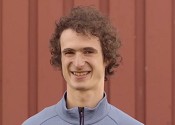


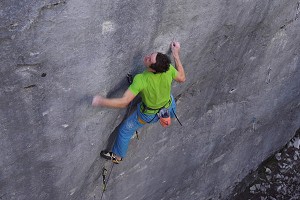


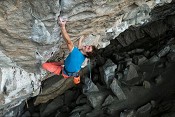
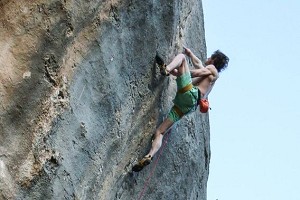
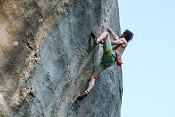
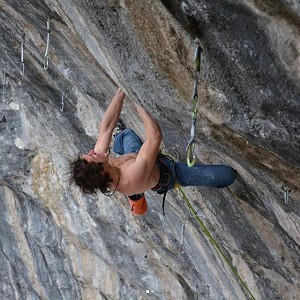
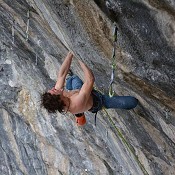
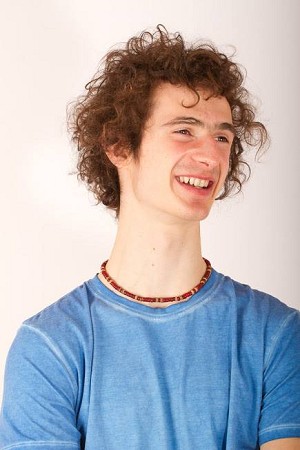

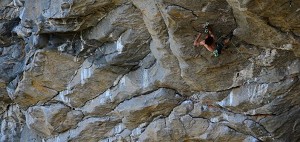





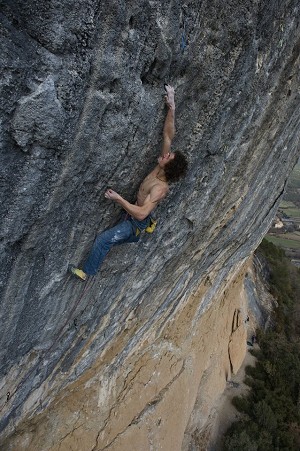
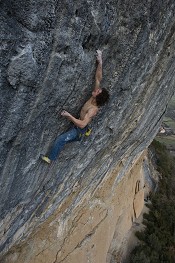




Comments
If anyone is interested in the history of Israel/Palestine: there's an amazing podcast series called Fear and Loathing in the New Jerusalem by Martyrmade podcasts. The guy who put it together is an incredible story teller. He really sets the context for the birth of the Jewish state by detailing the previous hundred+ years for both peoples. (also makes the British empire look pretty evil along the way) It's incredibly entertaining and thorough ... it's also very long. But well worth it.
Adam seems like such a nice guy and a great ambassador for our sport, but on this occasion I think he got things very wrong!
I will always give someone of Adam Ondra's character and genuine honesty the benefit of the doubt but the naivety shown by his visit to climb in Israel and the Occupied West Bank and the lack of understanding of the extent of the oppression of Palestinians in their own land is breathtaking.
Why? For visiting those areas at all?
Where in the article is this "lack of understanding" shown? To me, if anything, what came across was an interest in and willingness to understand the problems.